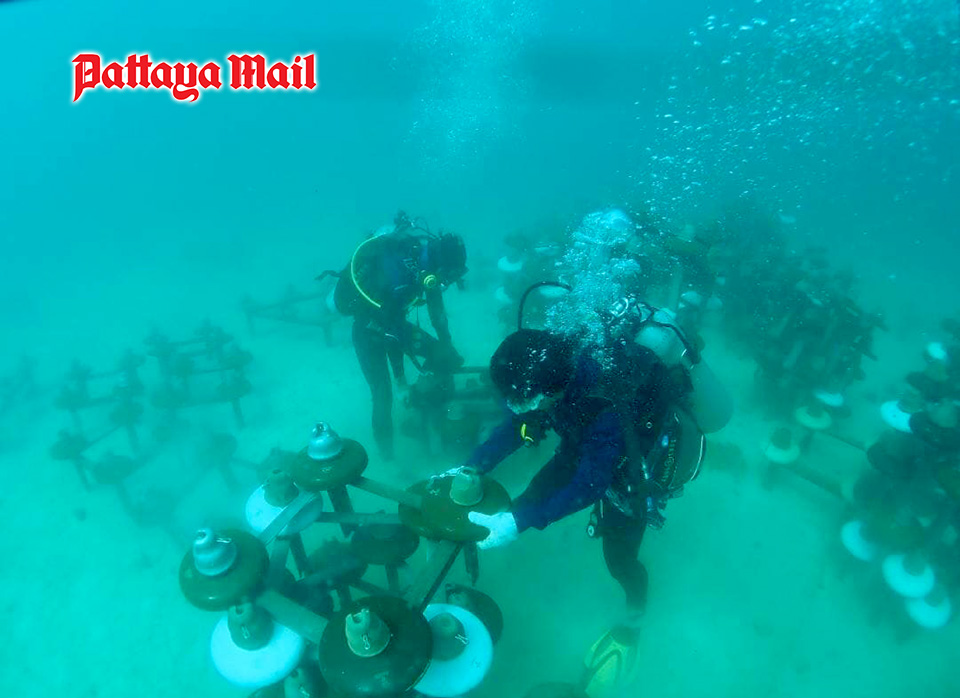
PATTAYA, Thailand – On November 17, the Electricity Generating Authority of Thailand (EGAT), the Department of Marine and Coastal Resources (DMCR), and the city of Pattaya organized the “Fish House Project,” an initiative set to establish an artificial reef on the seabed using decommissioned electricity insulators. Volunteer divers, deployed over 230 sets of electricity insulators to create an artificial reef near Koh Sak Island, off the coast of Pattaya.
Jintana Bamrung, representing Pattaya City emphasized the importance of Pattaya’s development as a premier tourist destination. She said, “The artificial reef, formed with decommissioned electricity insulators, aims to become a habitat for marine life, contributing to the restoration of the marine ecosystem. This restoration is poised to have positive effects on tourism and fisheries, bolstering the economy of Chonburi Province.”
Phaithoon Paenchaiyaphoom, DMCR’s Director of Conservation and Management Measures of Marine Resources Division highlighted the collaboration between DMCR and EGAT in a nationwide effort to restore Thailand’s marine environment. The Fish House Project, a part of EGAT’s broader Fish House Initiative, repurposes decommissioned electricity insulators into artificial reefs, fostering biodiversity and sustainable marine ecosystems along the coastline.
Sumitra Kanjanamitr, EGAT’s Head of Central Region Operations said, “The decommissioned electricity insulators, crucial in power transmission, are repurposed as bases for artificial reefs when they reach the end of their service life. This eco-friendly approach aids in creating habitats for marine life and contributes to the restoration of the marine environment.”

The initiative has already demonstrated success in various regions of Chonburi Province and is part of an ongoing effort, including collaboration with the Royal Thai Navy and the Internal Security Operations Command (ISOC) Region 4, to identify suitable areas for creating sustainable marine habitats.
The collaboration between EGAT and DMCR exemplifies a commitment to environmental conservation, sustainable development, and the well-being of marine ecosystems along the Thai coast. This initiative not only supports marine life but also provides opportunities for research, tourism, and economic development in the region.
EGAT’s contribution to marine conservation efforts, dating back to 2011, continues to expand. The deployment of natural coral formations derived from decommissioned electricity insulators has reached various regions across the country, including Prachuap Khiri Khan, Songkhla, Pattani, Narathiwat, Phang Nga, and Phuket. The cumulative deployment has now exceeded 5,000 sets, showcasing a sustained commitment to preserving Thailand’s marine biodiversity.

